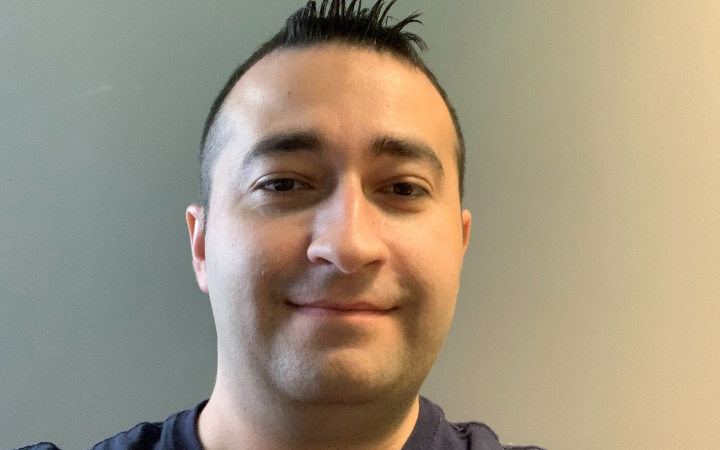Benjamin Davoodi
Title: Auxiliary Police Officer
Country: Canada
Course: Management Practices for Safer Roads: Toolkit
In 2002, the town of Drachten, in the Netherlands, removed nearly all traffic lights and road marks in the name of road safety. The aim was to reduce accidents and improve the town’s quality. The paradoxical experiment worked, and despite increases in traffic volumes, accident numbers fell from 8.3 per year between 1994 and 2002 to an average of just one per year in 2005.
If traffic signs are supposed to make traffic flow safer, how did the experiment work? The answer lies in the difference between rules and principles. Rules serve as external mechanisms to indicate a series of appropriate behaviours and establish where the limits are to help maintain order. By complying with the rules, community members are most likely able to live harmoniously.
Principles, on the other hand, precede rules and regulations. They are the internal foundation for a chain of reasoning. When members of a community have firmly established trusted principles, then rules become secondary. People can act with total freedom because they know that their behaviour and decisions will always meet certain standards. The nearly over 45,000 Drachten inhabitants seem to have understood the principle behind the traffic rules: that they must drive carefully to avoid putting others and themselves in danger.
Benjamin Davoodi understands this difference between rules and principles very well too. Throughout the years, Benjamin has built a career in law enforcement. As a man of rules, he serves his community as an Auxiliary Police Officer within the Community Response Unit (CRU) of the Toronto Police Service, reinforcing road safety through RIDE Spot-Checks and traffic speed surveys along with delivering crime prevention education and outreach. As a man of principles, he spares no time and effort to go beyond implementing regulations. Benjamin, who served on the Board of Directors for madd Toronto, a non-profit organization which promotes awareness of the risks associated with impaired driving, educates others on the importance of respecting and safeguarding everyone’s lives, particularly those on the road. “I love giving back to the community and I am very passionate about Road Safety. Anything that has to do with impaired driving road safety risks and hazards.”
For Benjamin, it comes down to respecting and protecting people’s lives.
“To have to go knock on the doors of family members and tell them their loved ones will not be coming back is dreadful. This really hits home; it hits the community. Sometimes what people regard as a simple stop sign can be what saves the life of the driver or someone else's. So, it is an important topic that is close to my heart. That is why I'm very passionate about it.”
Being “passionate” is no euphemism. Benjamin seats on various Road Safety Committees and provides outreach and education on the importance of doing everything possible to minimize human error and improve safety standards. He has also teamed up with various government institutions to found the Ontario Road Safety Association, a non-profit organization with the mandate to work with industry professionals and experts in order to provide free road safety education. “We go to our community centres, schools, places of worship and everywhere else to teach basic concepts on road safety, whether it is related to kids, cyclists, seniors and everyone in between.”
His dedication to promoting road safety awareness in his community is such that he has been awarded both the Canadian Governor Generals Medal of Sovereigns and the Lieutenant Governor of Ontario's Medal of Good Citizenship in acknowledgement of his efforts and commitment.
Benjamin not only educates others, but he is always looking for opportunities to further develop his own knowledge on the topic. So, when he came across UNITAR’s online course on Management Practices for Safer Roads: Toolkit, he decided to enrol himself and see what the training course was about. “I went through some of the reviews and material and thought ‘This is good, this is very universal. This is what I'm looking for!’ The fact that it was completely online was a big bonus. To be able to do it from your home, your office, wherever you are.”
But as someone so well versed in road safety principles and rules, how could Benjamin possibly benefit from this course? “While it served as a refresher to the things I already know, it also gave me a global framework. It provided a cross-examination of international advice, which I have never seen before because my perspective on road safety has been always local. It brought the right amount of information I needed.”
More importantly, the course had a similar approach to his: going beyond the rules and into the principles.
“Even though we have traffic lights, cameras, signs and enough space for everyone, there is always an element of surprise. We can redesign things to predict those risks, but everything comes back to outreach and education. This course focuses on that. It will not teach you the laws but the overall foundation of road safety. For instance, how driving carelessly and having a collision affects everyone else going about their days – because what happens to the main road affects everyone. So, it lays out the foundation from both domestic and international standpoints.”
Now Benjamin’s wish is for an extended and more advanced continuation of the course. “There could be a specific course for school settings, engineering settings… It could be brought to different industries, the private sector, the public sector, and branched out. It definitely would be an asset.” We could not agree more!


